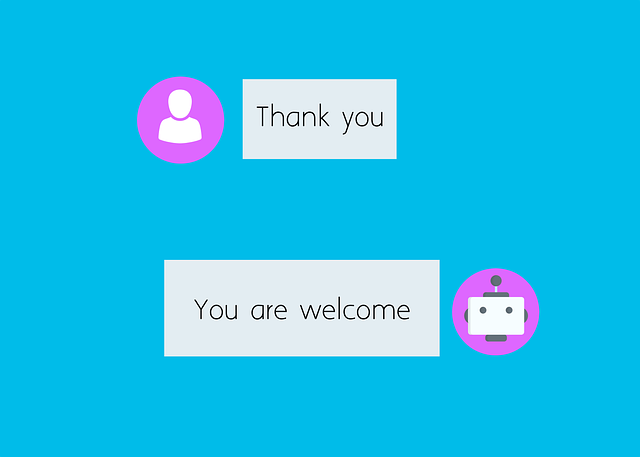Chatbots are transforming lead qualification by automating data gathering, engaging prospects 24/7 via NLP-driven interactions, and enhancing overall sales efficiency. They offer cost-effective solutions, accurate lead qualifying, and faster response times, allowing businesses to prioritize high-potential customers and boost conversion rates while freeing up human agents for complex tasks. Implement AI chatbots strategically by setting clear objectives, personalizing conversations, analyzing interactions, and continuously testing for optimal performance.
In today’s digital landscape, lead qualification is a critical yet labor-intensive process. This article explores how AI chatbots are revolutionizing this space by automating initial customer interactions and gathering essential data. We’ll delve into the challenges of traditional lead qualification, dissecting the role of chatbots in streamlining this process. Additionally, we’ll uncover the multifaceted benefits of employing AI chatbots, provide actionable tips for implementation, and offer insights on optimization strategies for maximum ROI. Discover how these virtual assistants can transform your sales funnel.
- Understanding Lead Qualification and its Challenges
- The Role of Chatbots in Streamlining the Process
- Benefits of Using AI Chatbots for Lead Qualification
- Implementing and Optimizing Chatbot Strategies for Maximum Results
Understanding Lead Qualification and its Challenges

Lead qualification is a critical process in sales and marketing, involving the identification and prioritization of potential customers who are most likely to convert into buyers. It’s about understanding customer needs, gauging their interest, and qualifying them based on specific criteria. However, this task presents several challenges for businesses. Traditional methods often rely heavily on human resources, requiring significant time and effort to qualify leads, which can result in delays and inefficiencies.
Chatbots are emerging as a powerful tool to tackle these challenges. They can engage with prospects, ask relevant questions, and collect valuable data in real-time, enabling businesses to quickly assess and prioritize leads. AI-powered chatbots are particularly effective in this regard, as they learn from each interaction, improving their qualification accuracy over time. This technology allows sales teams to focus on more complex tasks, ultimately enhancing overall lead management efficiency.
The Role of Chatbots in Streamlining the Process

Chatbots are revolutionizing lead qualification by streamlining the initial engagement process, allowing businesses to efficiently connect with potential customers. They act as virtual assistants, providing instant and personalized responses to inquiries, thereby saving time for both parties. By asking targeted questions and qualifying leads based on predefined criteria, chatbots can quickly identify high-value prospects, ensuring sales teams focus their efforts on the most promising opportunities.
Through natural language processing (NLP), these AI tools understand user queries, extract relevant information, and guide conversations in a human-like manner. This capability enables chatbots to gather insights about leads’ needs, preferences, and pain points without the need for extensive back-and-forth exchanges. The efficiency gained from this process translates to faster response times, improved lead nurturing, and ultimately, higher conversion rates.
Benefits of Using AI Chatbots for Lead Qualification

Using AI chatbots for lead qualification offers numerous advantages for businesses in various industries. One of the key benefits is their round-the-clock availability; these virtual assistants can engage with potential customers at any time, ensuring no qualified leads slip through the cracks due to operational hours. This accessibility allows companies to capture initial customer interactions and gather valuable data, enabling a more efficient lead nurturing process.
Furthermore, AI chatbots provide a cost-effective solution. They automate the qualification process, reducing the need for large sales teams and associated overheads. With their advanced natural language processing capabilities, these chatbots can qualify leads by asking targeted questions, assessing responses, and accurately categorizing prospects based on predefined criteria. This not only saves time but also improves lead quality, ensuring that sales representatives focus on high-potential customers.
Implementing and Optimizing Chatbot Strategies for Maximum Results

Implementing AI chatbots for lead qualification requires a strategic approach to achieve maximum results. Once integrated, it’s crucial to continually optimize chatbot strategies based on performance data and user interactions. Start by defining clear objectives aligned with your sales goals—whether it’s qualifying leads, providing initial customer support, or gathering specific information. Tailor the chatbot’s conversational flow and responses accordingly.
Regularly analyze chatbot interaction logs to identify areas for improvement. Enhance the bot’s accuracy by fine-tuning its natural language processing capabilities using relevant training data. Personalize the user experience by incorporating dynamic content and adaptive questioning techniques. Continuously test and iterate, leveraging A/B testing to compare different strategies and determine what works best for your audience.
AI chatbots have emerged as powerful tools to transform lead qualification, offering significant advantages in efficiency and effectiveness. By automating initial customer interactions, these chatbots streamline the process, gathering valuable insights and pre-qualifying leads swiftly. The benefits extend to improved user experiences, reduced agent workload, and enhanced sales productivity. To maximize returns, businesses should focus on implementing well-designed chatbot strategies, optimizing conversation flows, and leveraging advanced AI capabilities for accurate lead scoring. Incorporating these practices ensures chatbots become a game-changer in modern sales strategies.
